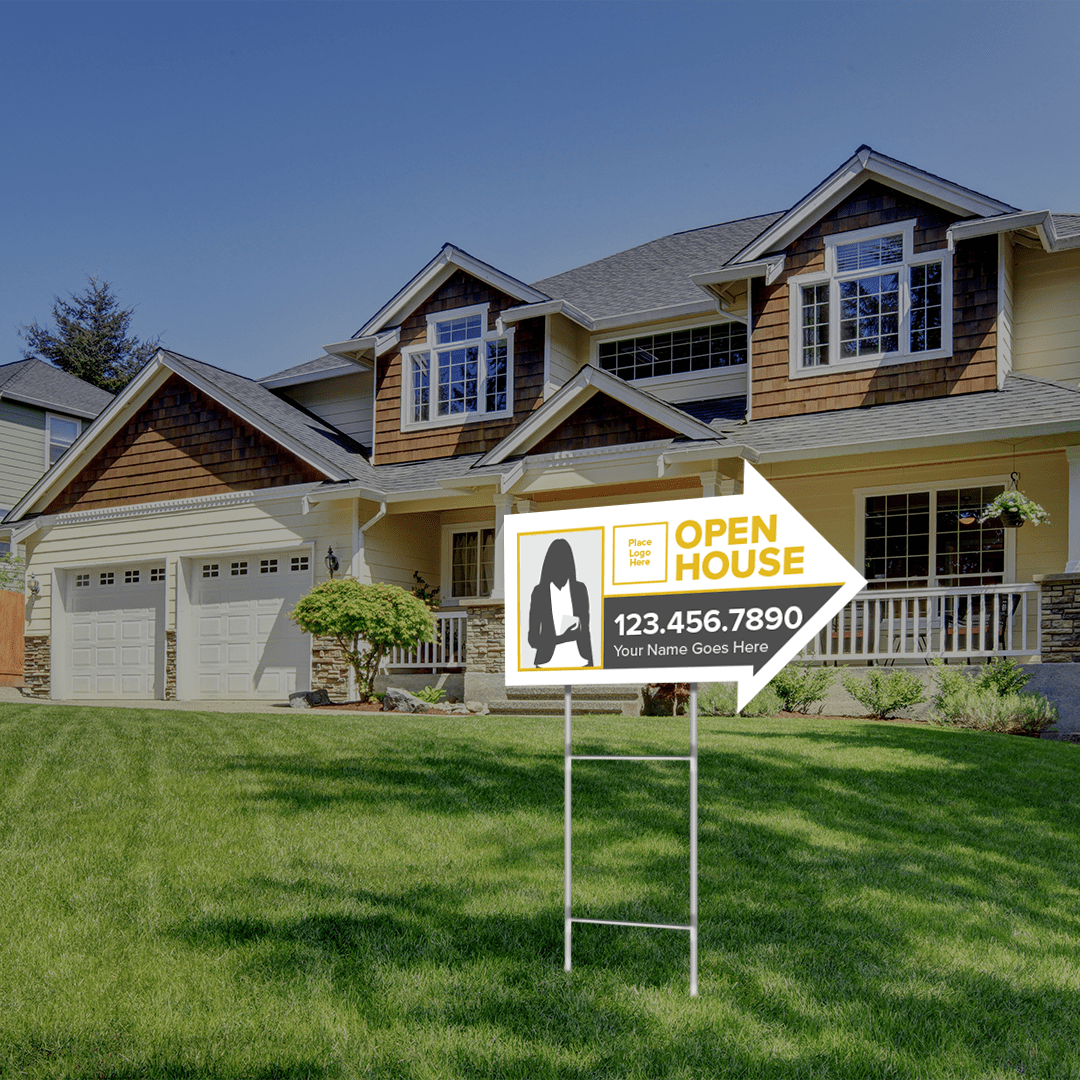
What Is a Yard Sign and Why Material Matters
A yard sign is a lightweight, temporary sign typically used outdoors in lawns or open spaces. They’re popular for political campaigns, real estate ads, or promotional messages. While they may seem simple, the material they’re made of plays a key role in determining their durability, weather resistance, and effectiveness.
Choosing the right material can make the difference between a sign that remains crisp and readable for weeks versus one that fades or falls apart after a single storm. In this article, we’ll break down the most recommended materials for yard signs, highlight their pros and cons, and share installation tips to help you maximize your signage investment.
Durability vs. Cost
When selecting a material for yard signs, it’s crucial to balance durability with your budget. Affordable options like corrugated plastic (coroplast) work well for short-term use, while PVC or aluminum provide long-lasting results at a higher cost. The key is to define how long the sign needs to last: for a few weeks, lightweight materials are fine; for months-long visibility, investing more upfront is worth it.
Weather Resistance (UV, Rain, Wind, Humidity)
Outdoor signs must withstand the elements. Prolonged sun exposure can fade prints, rain can damage uncoated materials, and strong winds can rip signs off weak stakes. Choosing UV-resistant and water-repellent materials is essential. Some premium materials also have treatments that help them endure extreme weather—perfect for areas like Austin, Texas.
Ease of Installation and Maintenance
Not all yard signs are equally easy to install. Some may require tools or reinforced hardware, while others can be set up with simple metal stakes. For reliable and professional installation, consider the installation services offered by Sign Depot ATX, especially if you have multiple signs or complex locations.
Final Application (Temporary vs. Permanent)
The intended use of the sign should also guide your material choice. For political campaigns or event promotions, temporary materials are cost-effective. But for real estate listings or branded business signage, more durable materials are a better investment. Learn more about this distinction in their guide on the benefits of yard signs for advertising.
Key Advantages
When it comes to long-term outdoor signage, aluminum stands out as one of the most reliable and versatile materials. It’s lightweight, rust-proof, and UV-resistant, making it perfect for harsh outdoor environments. Its smooth surface is also ideal for applying high-quality vinyl graphics.
Because it doesn’t rust, aluminum is a smart choice for areas with frequent rain or constant sun exposure—like the climate in Austin, Texas. Its long lifespan means fewer replacements and better overall value over time.
Common Use Cases
Aluminum is commonly used for business signage, real estate properties, and institutional events that require a polished, professional look. It’s also suitable for informative signs in parks, schools, and public spaces.
Considerations
While it comes with a moderate to high upfront cost, aluminum signage pays off over time due to its durability and minimal maintenance. It also pairs well with vinyl overlays, which means messages can be updated without replacing the entire sign.
Key Features
Expanded PVC is a great choice for cost-effective signage that still delivers a professional look. It’s lightweight, easy to cut, transport, and install, making it ideal for quick turnaround projects and temporary signs.
It also offers decent weather resistance, particularly in moderate climates. With a smooth surface that’s perfect for direct printing or vinyl application, it maintains a clean and sharp appearance.
When to Use It
Expanded PVC works well for short-term or medium-term promotional signage, especially in areas without extreme weather conditions. It’s commonly used for event signage, business promotions, or indoor/outdoor use under partial cover.
Limitations
While UV resistant, expanded PVC isn’t built to handle extreme heat or high winds. It can warp or detach if not properly installed or if left exposed to harsh weather for extended periods.
Experience and Reputation of the Provider
Choosing a provider with proven experience is essential to ensure high-quality work and lasting results. A provider’s track record and successful case studies reflect their ability to manage complex projects and meet client needs. Additionally, working with professionals with a solid reputation guarantees efficient installations without setbacks.
Geographic Coverage and Logistics
Another key factor to consider is whether the provider offers local and national services, as this can impact the logistics and cost of the project. Providers operating in wide areas typically have the resources needed to meet the demands of each client, regardless of location. Efficient logistics also ensure timely delivery of materials and installations according to agreed timelines.
Certifications and Compliance with Regulations
It’s crucial to verify that the provider holds the necessary certifications and complies with local regulations to ensure the safety and quality of the installations. This is particularly important for outdoor or public installations, where graphics must meet specific legal requirements. Working with a certified provider guarantees not only technical excellence but also adherence to safety standards.
Coroplast (Corrugated Plastic)
Coroplast, or corrugated plastic, is the most affordable and practical material for functional yard signs on a tight budget. It’s extremely lightweight, making it easy to transport and install, and it offers moisture resistance. Its smooth surface supports direct high-quality printing, making it great for quick-turnaround signage.
Common Uses
Due to its affordability and ease of use, Coroplast is widely used for political campaigns, temporary ads, trade shows, and event signage. It’s also a go-to for businesses that regularly update their promotional messaging.
Drawbacks
Coroplast’s main limitation is its low structural strength. It’s not built to withstand strong winds or prolonged sun exposure. Therefore, it’s not recommended for long-term use or extreme weather conditions. Still, if you need a short-term solution, Coroplast delivers excellent value and functionality.
Advantages
Acrylic and polycarbonate are premium signage materials known for their elegant appearance, clarity, and durability. They mimic the look of glass and support backlighting, making them ideal for modern, eye-catching displays. Both offer strong UV resistance and minor impact durability, ensuring a long-lasting, polished finish.
Common Uses
These materials are frequently used for high-end business signage, retail storefronts, hotels, and high-traffic pedestrian zones. They’re perfect for brands that value image and aesthetics, as well as visibility both day and night.
Acrylic vs. Polycarbonate
Acrylic provides superb visual clarity and is more affordable, making it a great choice for locations where physical impact is unlikely. Polycarbonate, on the other hand, is far more impact-resistant—up to 200 times stronger than glass—making it ideal for areas prone to vandalism or heavy wear, albeit at a higher cost.
Vinyl: Flexible Choice for Banners and Temporary Signage
Advantages
Vinyl is one of the most versatile and cost-effective materials used in signage. It’s highly customizable through digital printing, UV-resistant, and perfect for both indoor and outdoor temporary displays. Its flexibility allows it to be easily rolled, stored, and reused, especially when applied to banners or lightweight structures.
Common Applications
Vinyl is commonly used for seasonal advertisements, event signage, trade show displays, and short-term promotions. If you’re looking for an eye-catching, quick, and budget-friendly solution, vinyl delivers excellent results without sacrificing design quality.
How to Make Your Yard Sign Last: Installation & Care Tips
At Sign Depot ATX, we know that choosing the right material is only part of the equation—
proper installation and care are key to ensuring your yard sign performs well over time. Here are some of our top recommendations to get the most out of your signage:
Professional Installation
- We recommend using galvanized metal stakes or reinforced bases depending on the weight and exposure of the sign.
- Make sure the ground is flat and firm—this helps prevent tilting or falling, especially during windy days.
- For locations exposed to harsh weather, we often reinforce the corners or backing for added stability and longevity.
Maintenance Tips by Material
- Regular cleaning with a damp cloth or mild detergent helps extend the life of your signage.
- Avoid creasing or scratching flexible materials like vinyl or coroplast.
- For premium materials like aluminum or acrylic, occasional inspections are enough to keep them looking like new.
Contact Information
- Address: 12110 Manchaca Rd. Suite 200, Austin, TX, 78748
- Email: wecare@signdepotatx.com
- Phone: 512 219 8000
- Follow us:
 Facebook
Facebook
 Instagram
Instagram
Looking for yard signs that last? We make them, we sell them—visit our online store to order high-quality, durable signs built to perform outdoors.
COMPLETE THE FORM
CHECK OUR WORK
FAQ’S
What is the most durable material for outdoor yard signs?
Aluminum is widely considered the most durable material for long-term outdoor use. It’s rust-proof, UV-resistant, and performs well in all weather conditions, making it ideal for business, real estate, and permanent signage.
Which material is best for short-term or budget-friendly yard signs?
Coroplast (corrugated plastic) is the most affordable and practical option for temporary use. It’s lightweight, easy to install, and great for political campaigns, events, or short-term advertising.
How does weather affect yard sign material selection?
Materials like vinyl and coroplast may fade or warp in extreme heat, sun, or wind. If you’re in a location like Austin with strong sun and variable weather, UV-resistant materials like aluminum or polycarbonate are more reliable.
Can yard signs be reused or updated without replacing the whole sign?
Yes. Materials like aluminum can be paired with vinyl overlays, allowing you to update messaging without reprinting the entire sign—saving time and cost over the long term.
Is professional installation necessary for durable yard signs?
While not always required, professional installation helps ensure signs are properly anchored and weather-resistant—especially for heavier materials like PVC or aluminum and high-traffic or exposed areas.
Find Us in Austin, Texas
12110 Manchaca Rd. Suite 200 Austin, TX, 78748
Email: wecare@signdepotatx.com
Phone: 512 219 8000




